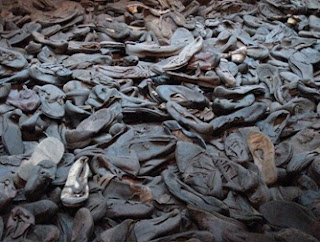I have never in my entire life thought about all of the useless things that I own; until we had to count it. But before we did that we had to compile a list of 100 things that we definitely need to survive. Each item such as pants, socks and shirts counted as its own item. For example on my list, items 10-17 were just shirts. I only kept the necessities such as a toothbrush, toothpaste, clothes, shampoo and deodorant. After all of those were listed I was at about 40 things. I am also really dependent on technology so I wrote down my iPod, laptop, phone and camera. But along with those items I needed all of their accessories which added up the list to over 60 items. That number was incredibly shocking and I could barely imagine how I would keep track of all of those things or why I needed them.
I was even more shocked to find out the results of the items in my room. I had to count everything twice to make sure it was actually true and I estimated it to be about 500 things, just in my room. That didn't include any of my things in my brothers, sisters or my parents room. When I told my mom she was shocked and told me that I can't buy anything for a while. Where did all of those things come from anyway? Stuff in my room has been their since I was little and it included paper, wigs, baseballs, hats, board games and books that I don't read anymore. This has made me think twice about all of the things that I actually need and utilize.
Afterwards we started a "Mapping the Impact" project and it made me feel even more guilty of all the things that I own and take for granted. My group decided to choose a pizza and we had to make a poster of what it takes to create a pizza. It seems simple right, get some flour to make the dough, add some sauce, cheese and toppings and then pop it in the oven until its done. Right? Think again. We discovered that almost every ingredient to make the pizza is from a different country. They ranged from Italy to China to South America. Not to mention all of the gas needed to transport it to the pizza shop and then to your house. Its not just one pizza, its all of the products in the world that we take for granted. Think about it. Pens, baseballs, clothes, hats, shoes etc. We need to change the way we do things and that time is now.
If you want to figure out your ecological footprint and impact on the earth click here to take a quick but important survey. My results showed that if everyone on this earth lived like me, we would need 5.33 earths to fit all of us and our things. That is horrifying. I thought of all of the people who live like me and the people who are worse. There are people on this earth doing everything they can from recycling to using less and I want to be one of them and help the earth. Will you join me?
I was even more shocked to find out the results of the items in my room. I had to count everything twice to make sure it was actually true and I estimated it to be about 500 things, just in my room. That didn't include any of my things in my brothers, sisters or my parents room. When I told my mom she was shocked and told me that I can't buy anything for a while. Where did all of those things come from anyway? Stuff in my room has been their since I was little and it included paper, wigs, baseballs, hats, board games and books that I don't read anymore. This has made me think twice about all of the things that I actually need and utilize.
Afterwards we started a "Mapping the Impact" project and it made me feel even more guilty of all the things that I own and take for granted. My group decided to choose a pizza and we had to make a poster of what it takes to create a pizza. It seems simple right, get some flour to make the dough, add some sauce, cheese and toppings and then pop it in the oven until its done. Right? Think again. We discovered that almost every ingredient to make the pizza is from a different country. They ranged from Italy to China to South America. Not to mention all of the gas needed to transport it to the pizza shop and then to your house. Its not just one pizza, its all of the products in the world that we take for granted. Think about it. Pens, baseballs, clothes, hats, shoes etc. We need to change the way we do things and that time is now.
If you want to figure out your ecological footprint and impact on the earth click here to take a quick but important survey. My results showed that if everyone on this earth lived like me, we would need 5.33 earths to fit all of us and our things. That is horrifying. I thought of all of the people who live like me and the people who are worse. There are people on this earth doing everything they can from recycling to using less and I want to be one of them and help the earth. Will you join me?





